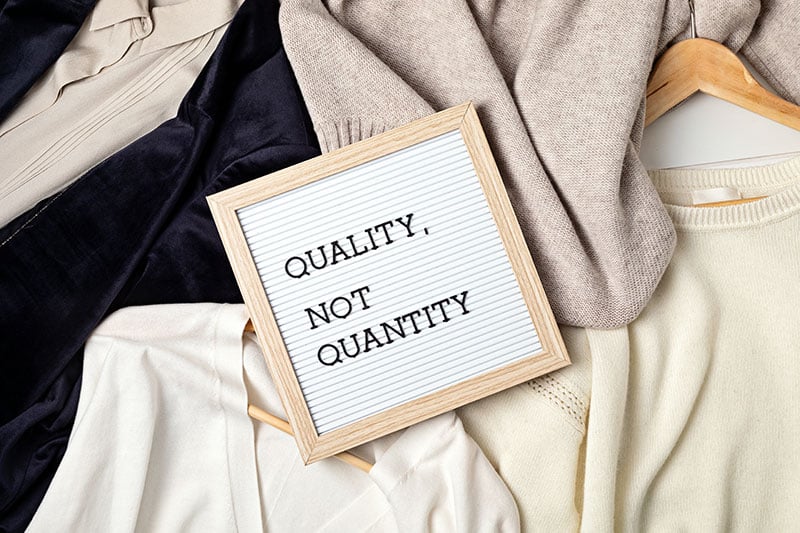The importance of ethical fashion choices

In today's rapidly evolving fashion landscape, the decision to choose ethically made clothing has grown from a niche interest into a crucial movement. The pursuit of making morally responsible fashion choices not only has a significant impact on our planet but also strengthens our personal relationships with the clothes we wear.
This blog post delves into the significance of ethical fashion, exploring how it influences environmental sustainability, social responsibility, worker rights, and ultimately, how it reinforces our connection with our wardrobe, aligning with our values and beliefs.
The Ripple Effect of Our Fashion Choices
Every piece of clothing we purchase has a backstory, a journey that involves numerous individuals and environmental resources. Making ethical fashion choices implies selecting apparel that prioritizes the welfare of the environment and the people involved in its production. But how exactly does this decision affect our personal relationships with our attire?
When we opt for ethically made garments, we're not just buying a product; we're investing in a story of fair practice, environmental stewardship, and community respect. This knowledge fosters a deeper appreciation and connection to our clothing, transforming them from mere objects into symbols of our values.
Moreover, ethical fashion often entails higher quality materials and craftsmanship, leading to longer-lasting items in our wardrobes. This, in turn, cultivates a relationship of care, value, and respect for the garments we own.
Understanding the Impact on Workers
The fashion industry is notorious for its exploitative labor practices. However, by choosing brands that are committed to ethical production, we contribute to the improvement of workers' lives around the globe. This conscious decision not only supports fair wages and working conditions but also empowers communities, enhancing the personal relationships between consumers and the artisans behind their clothes.
This connection brings a human element to our apparel, encouraging a sense of responsibility and care for the global community, thus enriching our personal relationship with fashion.
A Nod to Environmental Sustainability
Our planet is under siege from overconsumption and waste, much of it contributed by the fashion industry. Ethically produced attire leans heavily on sustainable practices, from utilizing eco-friendly materials to reducing waste and conserving water. Choosing sustainable fashion is an active stance against environmental degradation, aligning our wardrobe choices with our ecological values.
Such decisions not only contribute to the well-being of our planet but also solidify our personal relationship with nature and how we express that through our clothing choices.
The Role of Transparency and Trust
Transparency is at the heart of ethical fashion. Brands that are open about their manufacturing processes enable consumers to make informed choices, building trust and a stronger personal connection with the products they choose to bring into their lives.
This level of openness invites consumers to be part of a larger, ethically-minded community, fostering relationships based on shared values and mutual respect for the environment and human rights.
Conclusion
In conclusion, making choices towards ethical fashion significantly impacts our environment, the lives of workers in the apparel industry, and the sustainable future of our planet. More importantly, it enriches our personal relationships with our clothes, grounding our fashion sense in a deeply rooted sense of responsibility, quality, and care. As we continue to navigate our personal style journeys, let us remember the profound influence our choices have, not just on our wardrobes, but on the world.

Related